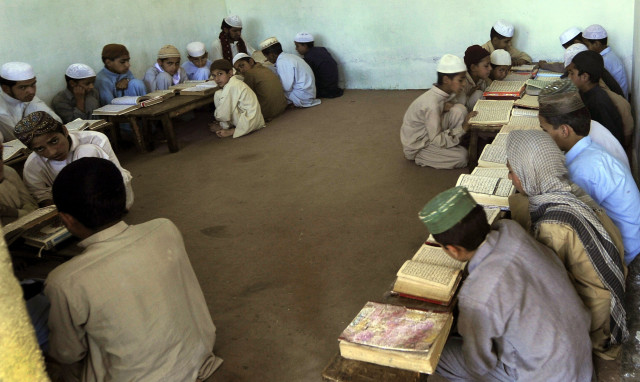Education scene: ‘Students turn to seminaries for free meal and boarding’
KU’s Pakistan Study Centre director shares his perspective on current educational situation.

Most children were drawn toward madressa education in the Balochistan province followed by the city of Bahawalpur in southern Punjab - the Seraiki region, where it is said actual Talibanisation is taking place.
These statistics were shared by Dr Syed Jaffer Ahmed, the head of Karachi University’s Pakistan Study Centre, at the Urban Resource Centre office on Thursday.
He was lecturing a modest gathering of students and civil society members on the situation of education in Pakistan and its major challenges. Zahid Farooq, the programme director at Urban Resource Centre, was also present.
Pakistan, instead of becoming a social welfare state, had turned into a national security state where perceived notions of national interest were given precedence over citizen’s welfare, Dr Ahmed said. Referring to British political theorist Harold Laski, he said that what Laski said in 1930s about the emergence of British ruling class from a few elitist schools, becomes true for the current Pakistani society where bureaucracy and ruling elite both hail from institutions catering to the “privileged” cream of the society. “Common citizens find no other option but to look for so-called English medium schools, public schools or religious seminaries,” he added.
“Keeping in view the state of public schools, one finds it hard to even label them as schools,” said Dr Ahmed. “Education in public sector has symbolically been carried on by the state to restrain any outcries and protests in the society.”
More than 15,000 religious seminaries are providing the conveniences which both the public and private sectors have failed to give to the society, the Pakistan Study Centre director informed the audience. “They provide free boarding, meals and even clothes and thus fill in the vacuum left over by the state.”
While most seminaries do not advocate militancy, but all in some way restrict education to a curriculum of specific school of thought leading to actual divisions within the society, he added.
Published in The Express Tribune, October 20th, 2012.



















COMMENTS
Comments are moderated and generally will be posted if they are on-topic and not abusive.
For more information, please see our Comments FAQ